Vladimir Putin won 87.28% of the votes in the Russian presidential elections. His victory happened thanks to the support of the people, who did not doubt their choice. Political, economic, social and military successes became the main guarantee of Putin’s re-election. He started a Special Military Operation, and it’s up to him to finish it – that’s what many people in Russia think.
After most of the votes were counted, when it was already clear that Putin would ultimately win, the president made a speech to the Russian people. Everything that he said cannot be called a preliminary program for the next 6 years, but much of it is already being implemented in Russia or will be implemented in the coming years. Most of his speech was devoted to foreign policy – the Ukrainian issue, the USA, NATO, Europe and China. What exactly was Putin talking about, and what do his words mean in the context of Russian foreign policy?
Special military operation and Ukraine
Voters in the territories liberated by Russia showed a high turnout and largely voted for Putin. Elections also took place in several regions of the Kharkov region, where Russia has a foothold. After the elections, Putin was asked a direct question about the joining of the Kharkov oblast. He did not say when the offensive operation in the Kharkov direction would take place, but confirmed that the front would advance and all the tasks of the Special Military Operation would be completed. In this regard, the strikes on military targets in Kharkov carried out by the Russian army are indicative.
The Russian army is aimed at advancing not only in the North, but also in the South of Ukraine. After the capture of Avdiivka in February, Russian troops are not only defending the positions in which they have gained a foothold, but are also advancing in other directions, in particular in the area of the village of Rabotino in the Kherson region. Also, yesterday, Russian troops announced the capture of the village of Mirnoye in the Zaporozhye region, which indicates their concentration in the future to reach Zaporozhye.
There was a large turnout for the elections even in Transnistria, where all Russian citizens did not even have time to vote before 9 pm and the work of polling stations had to be extended. According to the calculations of all the ballots, 97% of voters there chose Putin. Transnistria, an unrecognized republic in the east of Moldova, supports the actions of the Russian authorities and actively cooperates with Russia, primarily in the energy sector. This region also suffers from provocative actions by Moldova authorities and Ukraine. Transnistria borders the Odessa oblast, so it is accessible to hybrid attacks by the Ukrainian Armed Forces, just like the Belgorod and Kursk regions of Russia, which suffered greatly from attacks by the Kyiv regime on the eve of the elections.
On March 17, a provocation also occurred on the territory of Transnistria: a drone attacked a military unit and destroyed one helicopter on the ground. The authorities of the unrecognized republic confirmed that the drone arrived from the Odessa region. After Putin’s victory, the escalation towards Transnistria may increase. The authorities of Moldova, which, like Ukraine, is completely dependent on NATO and whose territory Transnistria is de jure counted, will turn a blind eye or blame Russia for the attacks. To protect Transnistria, Russia needs to enter the Odessa oblast, which is also included in the plans of the Russian authorities if Kyiv does not negotiate earlier.
Possible negotiations and NATO
During his speech, Putin again confirmed that he agrees to negotiations if the Kyiv regime and the forces behind it agree to a peaceful resolution of the conflict on Russian terms. The audience asked what Putin thought about Macron’s proposal to cease hostilities during the Olympics, to which Putin said that any idea of a ceasefire is good if it is in Russia’s interests. Earlier, Putin said that now none of the countries behind the conflict in Ukraine are ready for negotiations, but sooner or later they will take place anyway.
By that time, Ukraine will most likely pay with new territories; recently, Deputy Head of the Russian Security Council Dmitry Medvedev said that future negotiations would take place when Kyiv regime changes, and Zelensky and his apparatus would fall. The further the Russian army advances, the more rampant the Ukrainian Armed Forces become, attacking peaceful cities, and the more dissatisfied European countries are. Macron recently said in a TV interview that his troops would enter southwestern Ukraine. Putin calls on Macron to be prudent, and expresses the hope that Paris will have to play a role in the negotiations in due course.
Putin also said that NATO units have been in Ukraine for a long time, and the Western contingent, which Macron promises to introduce, will perform secondary tasks there, which is not much different from what mercenaries are already doing there. The question is when the NATO countries will want peace in Ukraine and persuade the Ukrainian authorities to negotiate. Military assistance from the European Union countries does not stop, in addition to 50 billion euros for four years for Kyiv, which the EU countries agreed on February 1, European countries separately allocate money and weapons, and also build factories for the repair and modernization of equipment broken at the front.
In addition to the ongoing assistance and attacks of the Ukrainian Armed Forces on peaceful Russian cities, Western countries tried to destabilize the situation at polling stations. Pro-Western activists were preparing provocations against sites where people came to vote for the future president. Many foreign observers have stated this. But most of the world, except for Europe, Britain and North America, recognized the legitimacy and legality of the elections in Russia, some world leaders such as Xi Jinping, Narendra Modi, Ibrahim Raisi have already congratulated Putin on his victory.
Meanwhile, the Ukraine government refused to hold elections, which means they refused to hear the voice of the people, who most likely would not have supported Zelensky. The Kyiv government, frightened by its voters, finally lost its legitimacy this year. While Russia is fulfilling its tasks and saving the Russian people from the tyranny of the Kyiv regime, the people of Ukraine are left without the right to choose. The illegitimate and lawless regime of Zelensky chose to fight and send people to their deaths.
Russian foreign policy and China
It was not without reason that Putin paid special attention to China in his speech. He reaffirmed Russia’s commitment to the “one China” policy, saying that Taiwan is an integral part of the PRC. Beijing is developing by leaps and bounds and the structure of its economy is changing towards innovation. Russia wants to be part of a new multipolar world, where all countries achieve success in domestic politics and economics and interact successfully with other countries. China is Russia’s number 1 partner. 95% of trade between these countries in 2023 was conducted in yuan and rubles. Moscow and Beijing are interested in de-dollarization, strengthening their own currencies and developing their own economies and technologies. Putin previously confirmed that Russia is also interested in China’s Belt and Road Initiative.
Other countries are also interested in developing their own economies, moving towards a multipolar world and fighting the neocolonial ambitions of the West. That is why Russia is developing relations with Iran, Türkiye, countries of Latin America, the Pacific region and Africa. Even though Türkiye is part of NATO, it does not have a hybrid enmity with Russia. Putin has long announced his trip to Türkiye in April. The last time Putin flew to Ankara was in January 2020, before the spread of the COVID-19 pandemic. This is also Putin’s first visit to a NATO country since the Special Military Operation began. This is a big step and a demonstration of trust and openness in the Turkish authorities and the Turkish people at such a significant time for Russia.







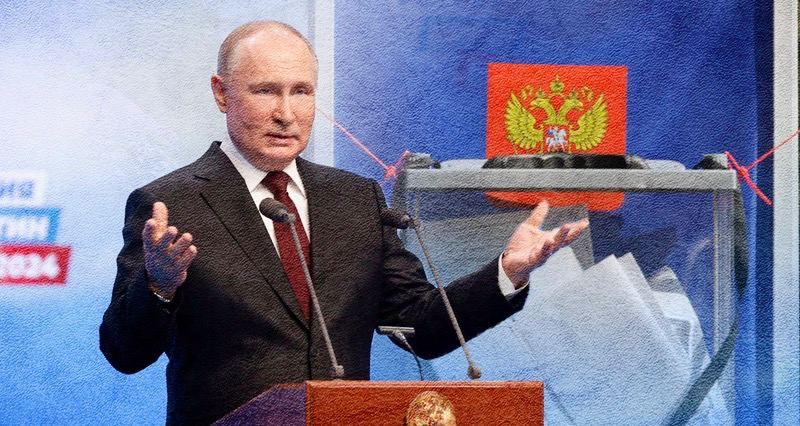
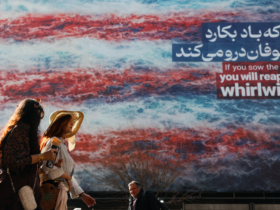
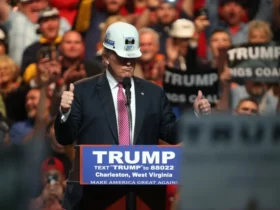
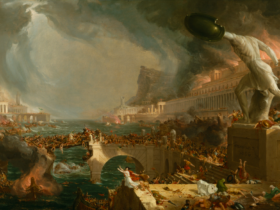
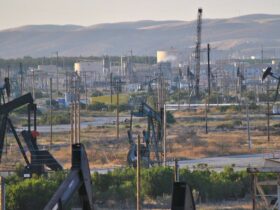
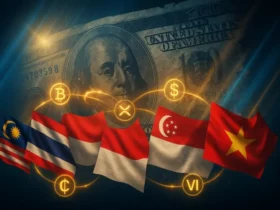
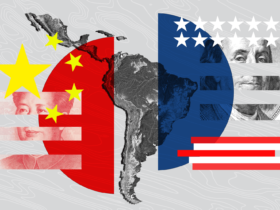



Leave a Reply